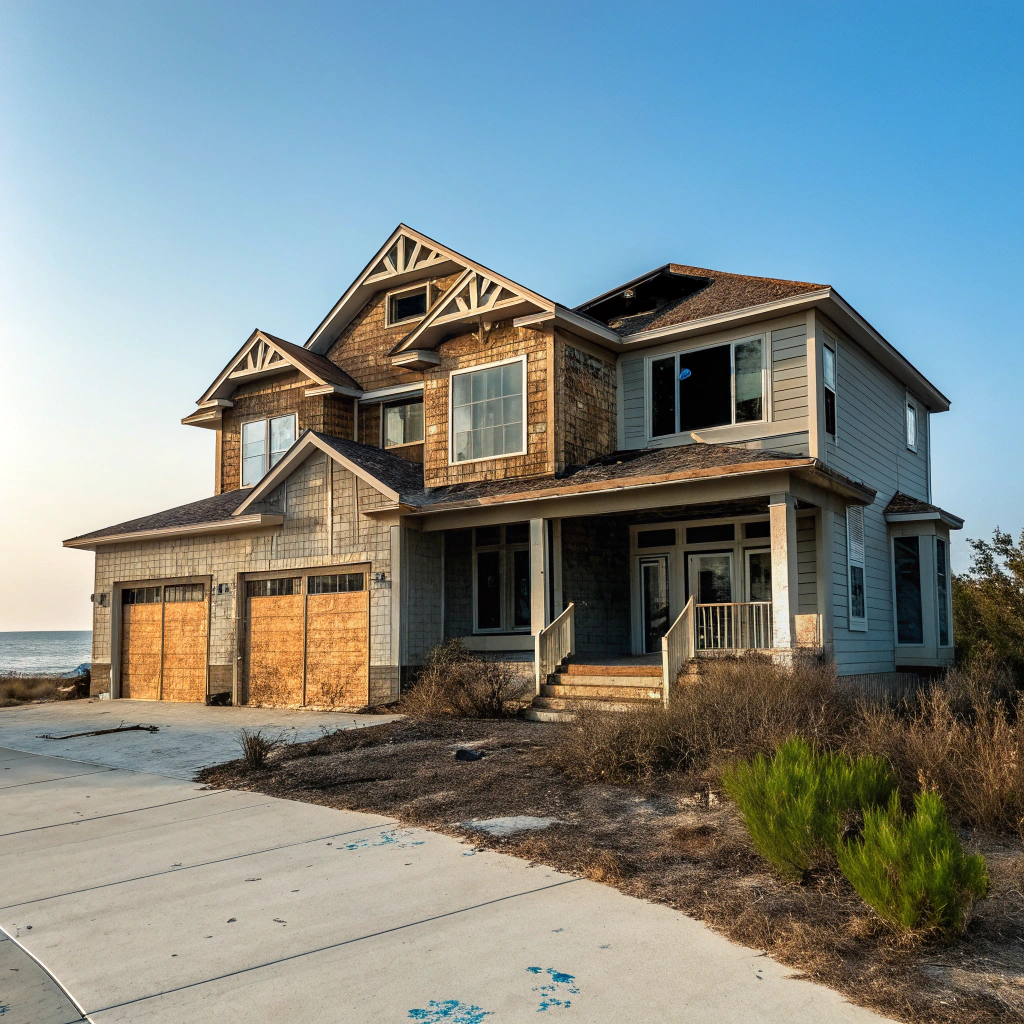Understanding the Full Scope of Fire Damage
Selling a fire-damaged house in North Carolina comes with emotional, financial, and logistical hurdles. Whether the fire was contained to a single room or caused widespread destruction, homeowners quickly discover that the impact reaches far beyond the burn area. Smoke moves through vents, water from firefighting efforts saturates the structure, and hidden damage often continues appearing weeks later.
In North Carolina’s humid climate, water-soaked materials are at high risk for mold, rot, and long-term structural deterioration. Even if the home looks “not too bad,” hidden issues can significantly reduce the property value — making the selling process harder than most homeowners expect.
It’s important to understand what a typical home fire affects:
- Structural framing
- Roof decking and trusses
- Electrical wiring
- Plumbing lines and HVAC components
- Insulation and drywall
- Interior finishes like cabinets, flooring, and fixtures
Smoke particles are acidic and corrosive. In older homes throughout Wilmington, Raleigh, Fayetteville, and surrounding areas, smoke can cling to surfaces and create long-term odor issues even after remediation. Knowing the full scope of damage helps you decide the best path forward — repairing, listing traditionally, or selling as-is.

Should You Repair or Sell As-Is?
One of the biggest decisions homeowners face is choosing between investing in repairs or selling the home in its current condition. Each path comes with benefits — and major drawbacks.
Repairing the Home
If you’re considering repairs, understand that fire restoration is not like typical home renovation. It involves:
- Fire-specific remediation contractors
- Mold treatment
- Electrical and plumbing replacements
- Specialized inspections
- Permits and code compliance
- Air purification and odor removal
Costs vary widely but often run between $30,000 and $200,000+, depending on the severity.
For homeowners with strong insurance coverage and significant time before they need to move, restoring the property may make sense. However, for many, the time, cost, and stress outweigh the benefit — especially when the final sale price often struggles to match expectations due to the home’s fire history.
Selling As-Is
Many North Carolina homeowners choose to sell the home as-is, primarily due to:
- Long contractor wait times
- Unpredictable insurance payouts
- Rising material/labor costs
- Tight timelines to relocate
- Emotional overwhelm
Selling as-is to a professional buyer like Cape Fear Cash Offer eliminates:
- Repairs
- Cleaning
- Inspections
- Showings
- Realtor commissions
For many, this becomes the most practical and financially beneficial choice.
North Carolina Disclosure Requirements
In North Carolina, sellers must disclose known issues about the property — including any past fire or smoke damage. Even if repairs were completed, the event must still be disclosed.
Common required disclosures include:
- Fire origin
- Areas impacted
- Repairs performed
- Insurance involvement
- Remaining damage
- Known electrical or structural issues
Failing to disclose can lead to:
- Contract cancellations
- Legal action
- Financial penalties
For homeowners worried about disclosure complications, selling to a cash buyer familiar with fire-damaged homes can be a stress-free solution. Cape Fear Cash Offer buys homes regardless of the severity of past fires and handles the documentation professionally.
Selling As-Is to a Professional Buyer
Working with an as-is cash buyer is the simplest way to sell a fire-damaged home in North Carolina quickly and without risk.
Cape Fear Cash Offer specializes in homes affected by:
- Kitchen fires
- Electrical fires
- Wildfire smoke damage
- Garage and attic fires
- Partial or whole-home damage
With this route, homeowners avoid:
- Months of reconstruction
- Fighting with insurance adjusters
- Carrying two homes at once
- Paying for temporary housing
- The stress of open-market uncertainty
The process is simple:
- Request a free property evaluation
- Receive a fair, no-obligation cash offer
- Choose your closing date
- Sell as-is — no repairs or cleaning required
Many Cape Fear Cash Offer clients close within 7–14 days, making this the fastest and least stressful option.
Related Articles:
The Hidden Costs of Repairing a Fire-Damaged House in North Carolina
Should You Fix or Sell Your Fire-Damaged House As-Is in North Carolina?
How to Prepare Your Fire-Damaged Home for a Fast Cash Sale in North Carolina

